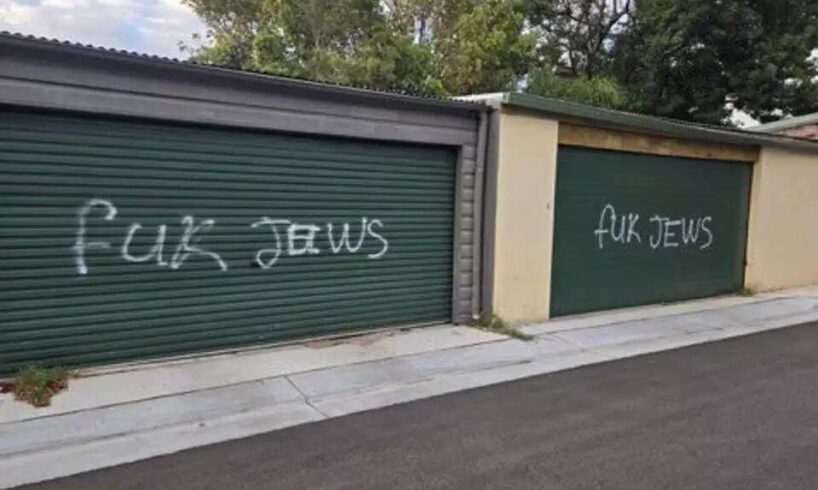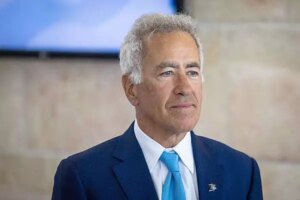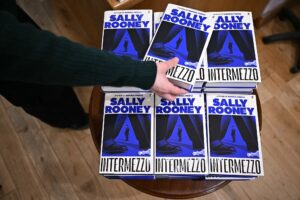
For over three decades, Devorah Halberstam, a Hasidic woman from the Chabad community, has carried the unimaginable pain of losing her son in a shooting attack and transformed it into a driving force for change. With her recent appointment as Chair of the Board of Commissioners for the Mayor’s Office to Combat Antisemitism in New York City, she brings extensive experience, an uncompromising vision, and a proud Hasidic identity that refuses to apologize.
“I don’t even remember who I was before,” she says, describing herself as an ordinary woman – a mother of five living within the Chabad community, with a deep personal bond to the Lubavitcher Rebbe. But in 1994, her life changed irrevocably: Ari, her 16-year-old eldest son, who she described as “what God wanted from people who live on this earth” and “a proud Jew”, was shot and killed in a terror attack carried out by Rashid Baz, a Lebanese national livery cab driver, on the Brooklyn Bridge. Authorities initially tried to present the murder as an act of “road rage,” but Halberstam advocated and ultimately succeeded in having it officially reclassified as an act of domestic terrorism. According to Halberstam, other than 9/11, this was the “worst terror attack to transpire in New York City.”
“Before the 9/11 attacks, nobody even knew the word terrorism,” she explains. “Even within law enforcement, there was no clear understanding of what terrorism was.” In many respects, Halberstam was ahead of her time: seven years before the attacks that changed the United States, she was already leading a relentless campaign for recognition of the global terror threat on American soil. “I don’t want to become someone filled with hate,” she emphasizes. “I’m very focused. The man who murdered my son, and those who helped him, are responsible, not a billion and a half Muslims.”
Devorah Halberstam
Since that day, Halberstam has become a key figure in New York’s public arena. Today, she heads two central entities: she serves as Chair of the Board of Commissioners for the Mayor’s Office to Combat Antisemitism, and Chair of the NYPD Civilian Hate Crimes Review Panel, a unique initiative she founded out of a belief that law enforcement needs support in identifying and addressing such crimes. “Our panel comprises citizens representing diverse communities – Jews, Muslims, Asians, Blacks, LGBTQ, and others,” she explains. “We review hate crime cases, like an oversight committee, to ensure the work is done correctly. The way it’s done today is unbelievable.”
She also played a pivotal role in the legislative arena. “I co-authored New York State’s terrorism laws before 9/11, under Governor Pataki. They were introduced in June 2001. They were signed into law the week of 9/11. We’ve used them many times since and saved many lives.” One of the reasons she’s respected across the political spectrum is her direct and pragmatic approach. Halberstam is not one for slogans – she speaks with leaders, builds relationships, and knows where to turn to get things moving. “The most important work is done behind the scenes,” she says. “Although sometimes, when things don’t happen, or when bad things happen, you have to expose it.”
Beyond experience and vision, she carries an identity that cannot be ignored: a Hasidic woman in a senior public role in the second-largest Jewish city in the world. She sees this as a mission. “I don’t necessarily view myself in a gendered role, but it probably is a unique case, not because women can’t do it, but because the role many women in the Jewish community play, especially those raising large families, is centered at home. That doesn’t mean you can’t do both. We need more role models to stand up and raise their voices. There’s no contradiction – women raising families are deeply concerned about what lies ahead, including whether their children might be targeted simply for being Jewish. We need as many voices as possible speaking out about antisemitism.”
Asked about mayoral candidate Zohran Mamdani, who has expressed support for boycotting Israel and has been accused of antisemitic rhetoric, she chooses not to comment. “I do know who Mayor Eric Adams is,” she says. “I’ve known him for twenty years. His stance is clear and consistent. He has a deep understanding of antisemitism and has stood by the Jewish community. I saw it firsthand. A mayor’s job is to bring people together, not to pit them against each other, and Mayor Adams has done that.”
My mother always said a dark place can be a burial or a planting. Devorah Halberstam pulled herself out of her dark place after the horrific murder of her son by committing herself to prevent the loss of other children in our city. pic.twitter.com/m1ZuWKnkLK
— Mayor Eric Adams (@NYCMayor) May 22, 2025
In addition to her public roles, Halberstam co-founded the Jewish Children’s Museum in Crown Heights, which was established two decades ago in memory of her son Ari. “The purpose of our museum is that children should come and learn about the Jewish experience, and then they would gain acceptance, understanding, and respect. Since its founding, we’ve already had four million visitors.”
Since October 7, she acknowledges that public discourse around Jews and Israel has sharply deteriorated. “We live in the world of social media more than the real world,” she says. “People shout slogans without understanding them. But I’m not phased by it for one minute.” Halberstam points to the disproportionate focus on the war between Israel and Hamas: “There’s a war going on in Ukraine with hundreds of thousands of deaths on both sides, and no one talks about it. All the attention goes to Gaza.”
She draws a clear line between anti-Israel sentiment and classical antisemitism. “The lines have been blurred between anti-Israel rhetoric and Jew-hatred. People hide behind it. People need to ask themselves why they’re so filled with hate. Let them call me a Zionist – I’m a Jew. I love Israel. I’m profoundly grateful that we live in a time when Jews have a country of their own, one that allows them to do what is necessary to protect Jewish lives.”
Her message to Israelis? “You’re my people. You’re the flesh of my flesh, the blood of my blood. We must never forget, we are one people under one God.”





